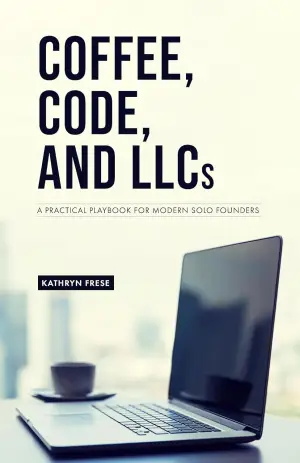Navigating the Political Landscape at Work: A Dive into Secrets to Winning at Office Politics
When I picked up Secrets to Winning at Office Politics by Marie G. McIntyre, I was in one of those "What am I even doing at work?" phases—a feeling we all grapple with at some point. The title intrigued me; it wasn’t just a vague self-help book but a guide with the promise of practical insights on a topic often cloaked in secrecy and dubiousness. McIntyre, an organizational psychologist and corporate consultant, beckoned me to explore the nuances of office dynamics that I knew existed but rarely acknowledged.
The book is divided into three comprehensive sections, each meticulously outlining the fundamentals of workplace politics. McIntyre doesn’t shy away from the idea that politics is, in fact, a fundamental aspect of any organization. Rather than painting this as a negative concept, she emphasizes that understanding the political landscape is invaluable for personal and professional growth. The chapters are filled with relatable anecdotes that illustrate both triumphs and pitfalls. This blend of theory and real-life application made me feel less alone in navigating these murky waters.
One of my favorite takeaways was her assertion that "politics is not a dirty word." This single statement resonated deeply with me, reframing my perspective on workplace interactions. McIntyre emphasizes that influence is a natural part of workplaces and that mastering it can pave the way for achieving our goals without sacrificing our values. Her conversational writing style kept me engaged, and the self-assessment exercises sprinkled throughout the book encouraged a genuine reflection on my own behaviors and relationships at work.
The pacing of the book strikes a lovely balance—it’s insightful without feeling overwhelming. I found myself underlining impactful phrases and revisiting sections that struck a chord with my experiences. For instance, McIntyre’s discussions on managing difficult colleagues and the importance of “political game plans” foster a sense of empowerment. One reviewer mentioned how enlightening it was to read concepts they had thought about but couldn’t articulate, and I felt that same acknowledgment while diving into her work.
As I read through testimonials and reviews—from graduates wishing they had it earlier to seasoned employees gaining fresh insights—I felt a larger community of readers connecting over shared experiences. The book doesn’t just cater to one demographic; rather, it’s a valuable resource for anyone hedging through office politics, whether they are newcomers in their careers or seasoned veterans looking to refresh their strategies.
In conclusion, Secrets to Winning at Office Politics serves not merely as a guide but as a comforting companion through the complex dynamics of workplace life. I would especially recommend this book to recent graduates entering the workforce or anyone feeling overwhelmed by the labyrinth of office relations. By adopting McIntyre’s wisdom, we can navigate office life with grace and integrity, ultimately turning our challenges into stepping stones towards success.






